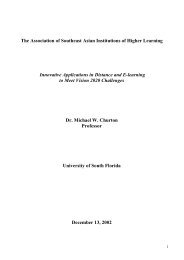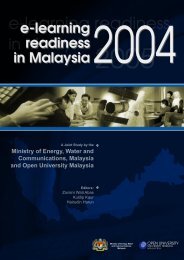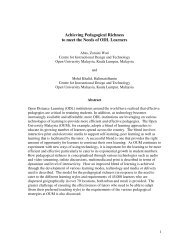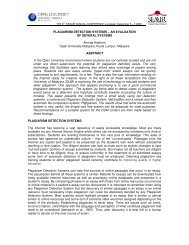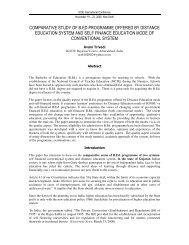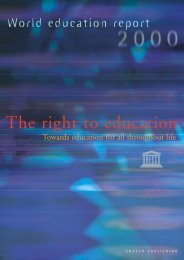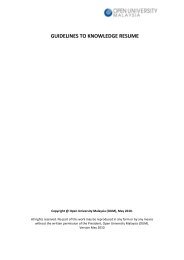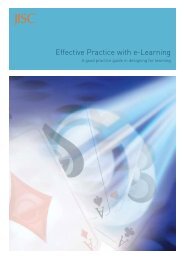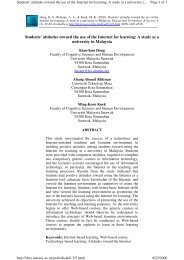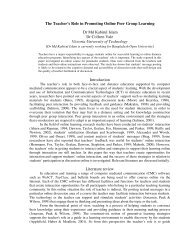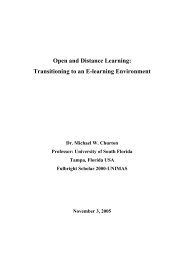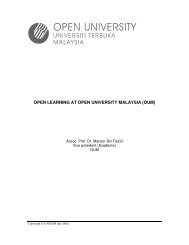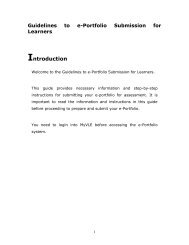lifelong learning and distance higher education - Asia Pacific Region
lifelong learning and distance higher education - Asia Pacific Region
lifelong learning and distance higher education - Asia Pacific Region
- No tags were found...
You also want an ePaper? Increase the reach of your titles
YUMPU automatically turns print PDFs into web optimized ePapers that Google loves.
CHAPTER 10PROMOTING CROSS-BORDERRECOGNITION AND MOBILITYDEVELOPMENTS IN THE NETHERLANDSJindra Divis, Astrid Scholten <strong>and</strong> Anne Marie MakCHAPTER SUMMARYReliable <strong>and</strong> transparent information about national systems of <strong>education</strong> – especiallyabout national quality assurance <strong>and</strong> accreditation mechanisms – are of great importancefor the promotion of cross-border recognition <strong>and</strong> mobility. The term cross-border<strong>education</strong> refers to (a) programmes offered by an <strong>education</strong>al institution in one countrythat can be followed by students from abroad, or (b) <strong>education</strong> provided by a crossnationalgroup of co-operating institutions for students from various countries. Providersof e-<strong>learning</strong> study programmes (i.e. <strong>distance</strong> <strong>learning</strong> programmes supported by thenew information <strong>and</strong> communication technologies) should try to gain access to national<strong>education</strong> systems or, if this is not possible, jointly define quality st<strong>and</strong>ards <strong>and</strong> criteria.For “consumers” of (<strong>distance</strong>) <strong>education</strong> – students <strong>and</strong> employers – but also credentialevaluators <strong>and</strong> administrators at other <strong>education</strong>al institutions, it is important to knowwhat the quality status of a given study programme is. Transparency instruments, such asthe Diploma Supplement <strong>and</strong> the European Credit Transfer System, can be of additionalhelp in enhancing recognition of e-<strong>learning</strong>. To further enhance international recognitionof all forms of <strong>lifelong</strong> <strong>learning</strong> the practice, of international credential evaluation shouldbe combined with instruments for prior <strong>learning</strong> assessment <strong>and</strong> recognition.INTRODUCTIONTo promote incoming <strong>and</strong> outgoing mobility it is of the utmost importance that countriesprovide reliable <strong>and</strong> transparent information on their national systems of <strong>education</strong>.This includes information on quality assurance <strong>and</strong> accreditation systems, how thesesystems work <strong>and</strong> who is responsible for what. The quality <strong>and</strong> (accreditation) statusof an institution or a specific programme are among the basic questions that students,employers <strong>and</strong> others want answered. The above is also of importance for <strong>distance</strong><strong>higher</strong> <strong>education</strong>, especially for the study programmes that are offered cross bordersusing new information <strong>and</strong> communication technologies (ICTs). ICT-supported <strong>distance</strong>121



